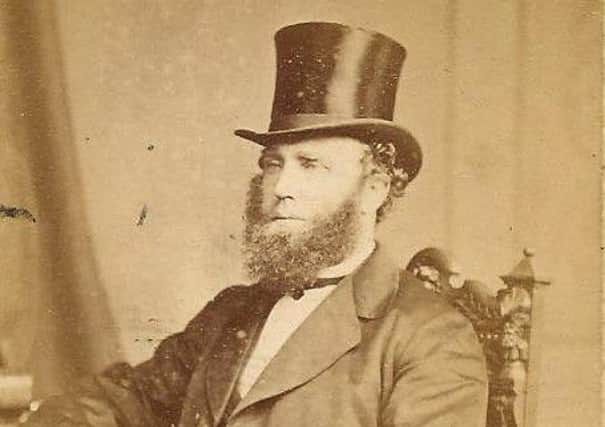Discovering the great stories your ancestors have to tell


If I can get back that far I shall have identified up to 126 ancestors and they all live on in me, as I have inherited my DNA from them: the colour of my eyes, the shape of my ears and so on.
How do I learn more about these ancestors? I’ve got names, dates and occupations, but what I really want to know is their stories. Many, of course, led uneventful lives, but surely some of those 126 ancestors and many more uncles, aunts and cousins had some stories worth telling?
Advertisement
Hide AdAdvertisement
Hide AdThe best place to start is to ask the older generation, if they are still alive. And ask your cousins about family stories.
A word of warning: while a story often has a grain of truth, the details have frequently become garbled over the years. Some years ago I had an e-mail from an American asking whether I knew anything about John McKeag, a soldier in Devon. John McKeag, the soldier in Devon, turned out to be James McKeag, a policeman in Govan, and my grandfather’s brother.
It is estimated that many English people really are descended from King Edward III and many Irish are descended from Niall of the Nine Hostages. It gives us a kick to find fame and fortune in our family, but there are many other stories that can be just as interesting, like stowing away on a ship; serving in the Boer War; inventing a new device.
There are many possible sources of such stories (old letters and prison records to name a couple), but probably the best sources are old newspapers. Local newspapers cover all classes and ages and old papers reported in great detail. Local news could cover the AGM of a club or society, listing all the office holders and perhaps all those attending. It often covered the court house, listing the jurymen, the lawyers, the victims, the witnesses, the police officers and, of course, the accused. It even covered the Sunday School outing to Portrush.
Advertisement
Hide AdAdvertisement
Hide AdPeople in Ulster were very political and many public meetings were held on religious matters or on Home Rule or on tenants’ rights and these often led to petitions signed by very large numbers of people of all classes. Newspapers printed the names of all concerned, knowing that each would want to buy a copy.
Until recently, poring over old newspapers was a slow and tedious job. Now, however, vast numbers have been scanned and automatically indexed, so all you need to do is type a word or two, such as Jacob Preston, and up will come a list of all the occurrences of that phrase. Jacob lived from 1740 to 1827 and not many occurrences of his name popped up. Then it clicked! Until the early 1800s printers used the ‘long s’ (that is: ſ, which resembled the letter f). So I typed Jacob Prefton and up they all popped.
And where are these papers to be found? There are several websites and most of them require a subscription because digitising and storing this information is not cheap. The British Newspaper Archive continues to digitise a vast number of English, Scottish, Welsh and Irish papers, over 700 so far, of which about 40 circulated in Ulster, including, for example, the Belfast News-Letter (1828-1956) and the Larne Times (1893-1955). These papers are also on the FindMyPast website. There is also the Irish News Archive with about a dozen newspapers that circulated in Ulster, and a couple of American sites with a few papers that circulated here: Newspapers.com and NewspaperArchive.com. Australia and New Zealand are well served with free sites at, respectively, Trove and Papers Past. The newspaper websites can be found at:
http://www.britishnewspaperarchive.co.uk
http://search.findmypast.co.uk/search/irish-newspapers
https://www.irishnewsarchive.com
https://www.newspapers.com
http://newspaperarchive.com
http://trove.nla.gov.au
https://paperspast.natlib.govt.nz
EVENTS:
The North of Ireland Family History Society’s Research Centre, courses and branches, with their meetings, are open to all. See www.nifhs.org
Advertisement
Hide AdAdvertisement
Hide AdMonday, March 13, 7pm, talk: Ulster Postcards, Drama Theatre, Glengormley High School. Queries to [email protected]
Tuesday 14, Foyle branch research visit to the General Register Office in Belfast, Details from [email protected]; 10am-Noon, course, £10: Emigration to Australia and New Zealand, at Unit C4, Valley Business Centre, 67 Church Road, Newtownabbey, BT36 7LS. Bookings to [email protected]; 2-4pm, course, £10: Family History using PowerPoint, at Unit C4, as above; 7.30pm, talk: The History of Belfast Hills, at The Bridge Community Centre, 50 Railway Street, Lisburn. Queries to [email protected]
Wednesday 15, 7.30pm, talk: LDS Family Search, Bleary Community Centre, 1 Deans Road, Bleary, Craigavon. Queries to [email protected]